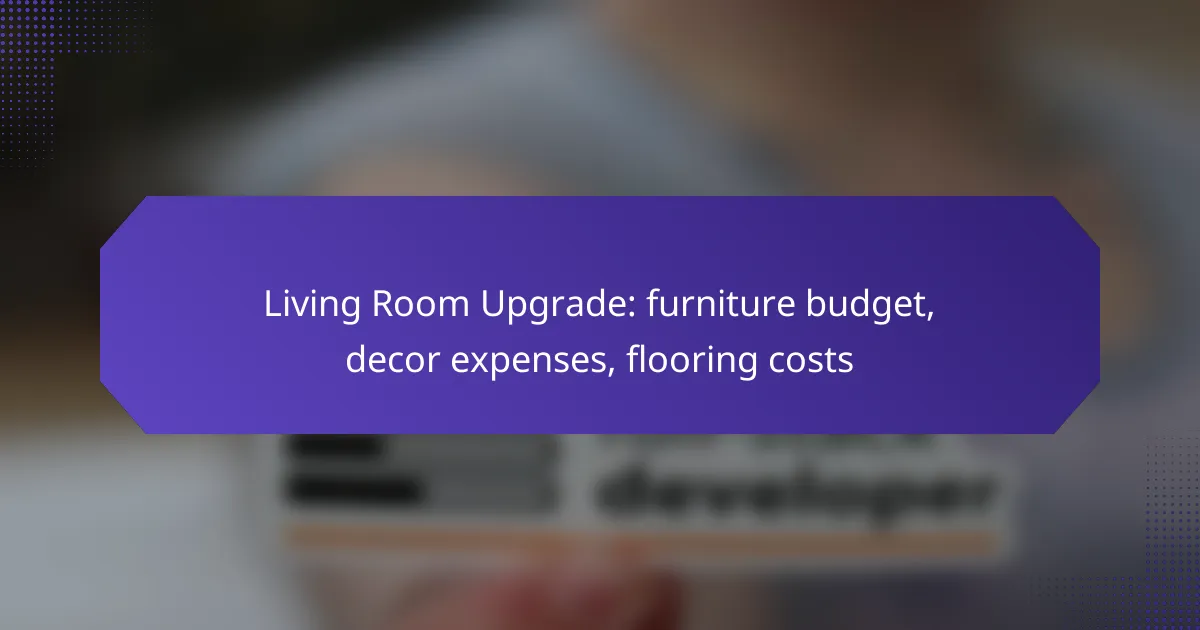Deck renovation can be a rewarding investment, but understanding the associated costs is essential for effective budgeting. Material prices can range from a few to over twenty dollars per square foot, while labor costs typically vary from ten to fifty dollars per hour based on experience and location. Additionally, design expenses, including consultation and permitting fees, can further influence your overall renovation budget.

What are the average costs for deck renovation materials in the US?
The average costs for deck renovation materials in the US can vary significantly based on the type of material chosen. Generally, homeowners can expect to spend anywhere from a few dollars to over twenty dollars per square foot, depending on the material and quality.
Wood decking prices
Wood decking typically ranges from about $3 to $10 per square foot, depending on the type of wood selected. Pressure-treated lumber is often the most economical option, while hardwoods like cedar or redwood can be more expensive but offer greater durability and aesthetic appeal.
When considering wood decking, factor in additional costs for maintenance, such as staining and sealing, which can add to the overall expense over time.
Composite decking prices
Composite decking materials generally cost between $5 and $15 per square foot. This option combines wood fibers and plastic, providing a low-maintenance alternative that resists fading and splintering.
Although the initial investment is higher than wood, composite decking often requires less upkeep, making it a cost-effective choice in the long run.
Vinyl decking prices
Vinyl decking prices usually range from $7 to $12 per square foot. This material is known for its resistance to moisture and insects, making it a suitable option for various climates.
Vinyl decking is also low-maintenance, but it may not have the same natural look as wood or composite options, which is a consideration for some homeowners.
Metal decking prices
Metal decking, often made from aluminum or steel, can cost between $10 and $20 per square foot. This material is highly durable and resistant to weather and pests, making it a long-lasting investment.
While metal decking can be more expensive upfront, its longevity and minimal maintenance requirements can offset initial costs over time.
Cost variations by region
Deck renovation material costs can vary significantly by region in the US. For instance, materials may be more expensive in urban areas due to higher demand and shipping costs.
Additionally, local climate conditions can influence material choices and prices; for example, regions prone to moisture may favor composite or vinyl options over wood to avoid rot and decay.

How much does labor cost for deck renovation?
Labor costs for deck renovation typically range from the low tens of dollars to over fifty dollars per hour, depending on the builder’s experience and location. Understanding these costs is crucial for budgeting your renovation project effectively.
Hourly rates for deck builders
Hourly rates for deck builders can vary significantly based on geographic location and the builder’s expertise. In urban areas, rates may start around $30 to $50 per hour, while rural regions might see lower rates, often between $20 to $40 per hour. Highly skilled or specialized builders may charge upwards of $70 per hour.
Factors affecting labor costs
Several factors influence labor costs for deck renovation, including the complexity of the design, the type of materials used, and the builder’s experience level. More intricate designs or high-quality materials may require additional labor time, thus increasing overall costs.
Seasonality can also play a role; demand for deck renovations often peaks in spring and summer, potentially leading to higher rates during these months. Additionally, local regulations or permits required for deck construction can add to labor expenses.
Estimated total labor costs
The total labor costs for a deck renovation project can range from several hundred to several thousand dollars, depending on the project’s scope. For a basic deck, you might expect to pay around $1,000 to $2,500 in labor, while larger or more complex projects could exceed $5,000.
To get a more accurate estimate, consider obtaining quotes from multiple builders. This will help you compare rates and services, ensuring you find a builder who meets your budget and quality expectations.

What design expenses should be considered for deck renovation?
Design expenses for deck renovation encompass various costs that can significantly impact your overall budget. Key considerations include consultation fees, permitting costs, and expenses for custom features or upgrades.
Design consultation fees
Design consultation fees typically range from low hundreds to low thousands of dollars, depending on the complexity of the project and the experience of the designer. Hiring a professional can help ensure that your deck meets both aesthetic and functional requirements.
When selecting a designer, consider their portfolio and client reviews. Some may charge a flat fee, while others might bill hourly, so clarify payment structures upfront to avoid surprises.
Permitting costs
Permitting costs vary widely based on local regulations and the scope of your renovation. In many areas, you might expect to pay anywhere from $50 to several hundred dollars for necessary permits.
Check with your local building department to understand specific requirements and fees. Failing to secure the proper permits can lead to fines or the need to redo work, so it’s essential to factor these costs into your budget.
Custom features and upgrades
Custom features and upgrades can significantly enhance the functionality and appearance of your deck, but they also add to the overall cost. Options like built-in seating, lighting, or unique railings can range from a few hundred to several thousand dollars, depending on materials and complexity.
When planning for custom features, prioritize those that align with your lifestyle and budget. Consider the long-term value they add to your home, as well as potential maintenance costs associated with more elaborate designs.

What are the key factors influencing deck renovation pricing?
Deck renovation pricing is primarily influenced by material quality, deck size and complexity, and geographic location. Understanding these factors can help homeowners budget effectively and make informed decisions about their renovation projects.
Material quality
The quality of materials significantly impacts the overall cost of deck renovation. Higher-quality materials, such as composite decking or hardwoods, tend to be more expensive but offer greater durability and lower maintenance over time. In contrast, pressure-treated wood is generally more affordable but may require more upkeep.
When selecting materials, consider the long-term value versus initial costs. For instance, while premium materials may have a higher upfront price, they can save money on repairs and replacements in the future.
Deck size and complexity
The size of the deck and its design complexity play crucial roles in determining renovation costs. Larger decks naturally require more materials and labor, leading to higher expenses. Additionally, decks with intricate designs, multiple levels, or built-in features like benches or railings will incur extra costs due to the increased labor and specialized skills needed.
Homeowners should assess their desired deck size and features against their budget. Simplifying the design or opting for a smaller deck can help manage costs effectively.
Geographic location
Geographic location affects labor costs and material availability, which can influence overall renovation pricing. For example, urban areas may have higher labor rates due to demand, while rural locations might offer lower costs but fewer material options. Additionally, local climate can dictate material choices, with some materials being more suitable for specific weather conditions.
When planning a deck renovation, research local pricing trends and labor rates. This can help you identify the best options for your budget and ensure you choose materials that are appropriate for your region’s climate.

How to choose the right materials for your deck renovation?
Choosing the right materials for your deck renovation involves considering factors like durability, cost, and aesthetics. Selecting the appropriate materials can significantly impact the longevity, maintenance needs, and visual appeal of your deck.
Durability and maintenance
Durability is crucial when selecting materials for your deck. Options like composite decking and treated lumber offer varying lifespans, with composites generally lasting longer and requiring less maintenance. Regular upkeep, such as sealing or staining, can extend the life of wooden decks but may add to long-term costs.
Consider local weather conditions when assessing durability. For instance, in regions with high humidity, materials resistant to mold and rot, such as PVC or aluminum, may be preferable. Always check for warranties that indicate the expected lifespan and maintenance requirements of the materials you choose.
Cost-effectiveness
Cost-effectiveness involves balancing initial material costs with long-term maintenance and replacement expenses. While natural wood may have a lower upfront cost, composite materials can save money over time due to their reduced maintenance needs and longer lifespan.
When budgeting for your deck renovation, consider not only the material prices but also labor costs associated with installation. In the U.S., labor can account for 30-50% of the total project cost, so factor this into your overall budget to avoid surprises.
Aesthetic preferences
Aesthetic preferences play a significant role in material selection for your deck. Different materials offer various colors, textures, and finishes, allowing you to create a look that complements your home and landscape. For example, natural wood provides a warm, traditional appearance, while composite materials can mimic wood but offer a wider range of colors.
Consider how your deck will be used and who will use it. If you plan to entertain guests, choose materials that are visually appealing and can withstand heavy foot traffic. Additionally, think about how the materials will age over time, as some may fade or change color, impacting the overall look of your deck.

What are the common mistakes in deck renovation budgeting?
Common mistakes in deck renovation budgeting include failing to accurately estimate costs for materials, labor, and design. These oversights can lead to significant financial strain and project delays if not addressed early in the planning process.
Underestimating material costs
Underestimating material costs is a frequent error in deck renovation budgeting. Homeowners often overlook the full range of materials needed, including decking, railings, fasteners, and finishes, which can add up quickly.
To avoid this mistake, create a detailed list of all materials required for the project. Research current prices from local suppliers and consider fluctuations in costs, especially for popular materials like composite decking, which can vary widely based on quality and brand.
As a rule of thumb, budget an additional 10-20% for unexpected expenses or price increases. This buffer can help accommodate changes in design or material availability during the renovation process.










